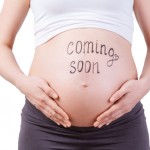Acupuncture and Fertility
Acupuncture and fertility involve the inserting of sterile needles that are ultra-thin into certain acupuncture points residing on the times and channels of the body. When these points are needed, it regulates the way the body functions. Acupuncture assists in addressing the problems affecting fertility like hypothyroidism and hyperthyroidism. It was traditionally a Chinese medicine aimed at improving the entire reproductive system and to restore the patient’s health to its peak to increase conception chances. It can be used concurrently and safely with other fertility-enhancing medications like Intrauterine Insemination and IVF.
The most probable causes of infertility among couples are: Ovulatory disorders, low sperm count, tubal damage and approximately 30 percent of the likely causes of infertility are unexplained. Fertility declines with an increase in age. Problems of infertility often result in stress among couples, these further decreases their fertility rate and minimizes their conception the chances. Acupuncture has therefore been considered as the one stop treatment for infertility.
Signs of Conception is also important to acknowledged with. A combination of acupuncture with herbal medicine has been used in the treatment of various causes of infertility. It has the potential effect of improving follicular and ovarian functions as well as increasing the flow of blood to endometrium hence enhancing the thick and rich lining. This combination can treat increased follicle stimulating hormone, repeated loss of pregnancy, idiopathic infertility, annovulatory cycles and luteal phase defect. This brings the relationship between acupuncture and fertility.
Acupuncture is the same as physical therapy because it is a process oriented form of medical intervention. It is the administration of medications to the patient for a period of 3-4 months before going for donor-egg transfer, In-vitro fertilization and insemination. In the modern world, acupuncture is increasing becoming popular for among couples experiencing fertility problems. Although it has been used for several years, acupuncture
is new to the people of the western world but in recent years there has been interest and surge among the people of the western world to relate acupuncture and fertility.
Acupuncture and fertility involves the use of fine needles to stimulate certain acu-points in the surface of the body. These points are located in the meridians innervating particular organ systems like the reproductive system. When these acu-points are stimulated, the blood and energy located in these points are stimulated too to circulate more effectively through the body into the organ systems hence increasing their efficiency and rectifying poor health of the patient.
There are few risks that are involved in acupuncture and fertility. in case wrong acupuncture points are used during pregnancy, the risk of miscarriage increases. To minimize these risks, it is recommended for people to seek the services of trained acupuncturist with expertise in the treating fertility problems. Acupuncture is however safe irrespective of the patient’s medical history. It is used in the curing of spasm tube; acupuncture de-spasmed the spasmed tubes. Blocked tubes do not work well with acupuncture. Regardless of how acupuncture works, it is a painless procedure with few side-effects when carried out by a professional. Other risks associated with the procedure are the puncturing of the organs, minor bleeding, and transmission of infectious disease.
Acupuncture has been successfully used for over 3,000 years. Acupuncture and fertility based on the Chinese belief that there is need for energy balance in the body in order to stay health and imbalance or blockage in the flow can negatively affect the health. According to the Chinese, there are approximately twenty pathways that energy flow travel in the body, these pathways are called meridians and can be accessed through 400 acupuncture points. Depending on the problem experienced by an individual, there are various combinations of points in the body that are stimulated by acupuncture needles. The needles used vary in length depending on the point of body to be inserted. Stimulating these points leads to re-balance in the energy flow and your natural healing ability is rejuvenated.
Acupuncture, on its own is an alternative way of treating fertility related problems; is is also considered a complementary therapy to other fertility treatments. It is probably effective for couples with functional problems such as irregular ovulation and not for couples with structural problems such as sperm duct blockage. Acupuncturists argue that acupuncture assists by regulating the body system hence facilitating the flow of blood into the reproductive organs thus stabilizing the hormone levels. This will in turn enhance ovarian function among women and production of sperm in men.
When used as a complementary form of therapy for those women who are undergoing other fertility treatments, acupuncture has been proved to be effective and beneficial. It is believed that acupuncture enable women to be relaxed through their use of fertility treatments. Studies have in particular demonstrated that use of acupuncture increases the pregnancy rate for those women undergoing In Vitro Fertilization (IVF). Also women receiving acupuncture experience low rate of ectopic pregnancy.
Among women, acupuncture improves fertility by regulating the menstrual cycle through correction of hormonal imbalance; it enhances follicular development hence improving egg quality. It also thickens the uterus lining during fertilization and assisting in embryo implantation. Acupuncture also minimizes stress among women; since stress affects the regulation of ovulation and menstruation and therefore negatively hindering conception. Acupuncture also improves the general health hence reducing inflammation of illness that are likely to cause infertility.
Among men, acupuncture enhances sperm quality through the improvement of sperm mortality, count and abnormality. It addresses various health problems that contribute to poor quality of sperm. It also helps in minimizing stress among men; this is because stress negatively affects sperm production.
Acupuncture treats fertility problems by increasing the flow of blood to the reproductive organs, regulating the menstrual cycle and improving such conditions as endometriosis and polycystic ovaries.
Acupuncture counteracts the effects of polycystic ovarian syndrome. This is developing as the major cause of infertility. Acupuncture solves this conditions minimizes activities in the sympathetic nerve and reducing the ovarian cysts; acupuncture and fertility rectify hormonal imbalance and stimulation of ovulation.
It can also regulate such secondary effects as obesity and anorexia. Acupuncture reduces stress and affects hormonal levels by triggering the release of Beta-endorphin in the brain that can in turn affect the production of gonadotrophin triggering hormone the by hypothalamus and the follicle stimulating hormone by the pituitary glands.




